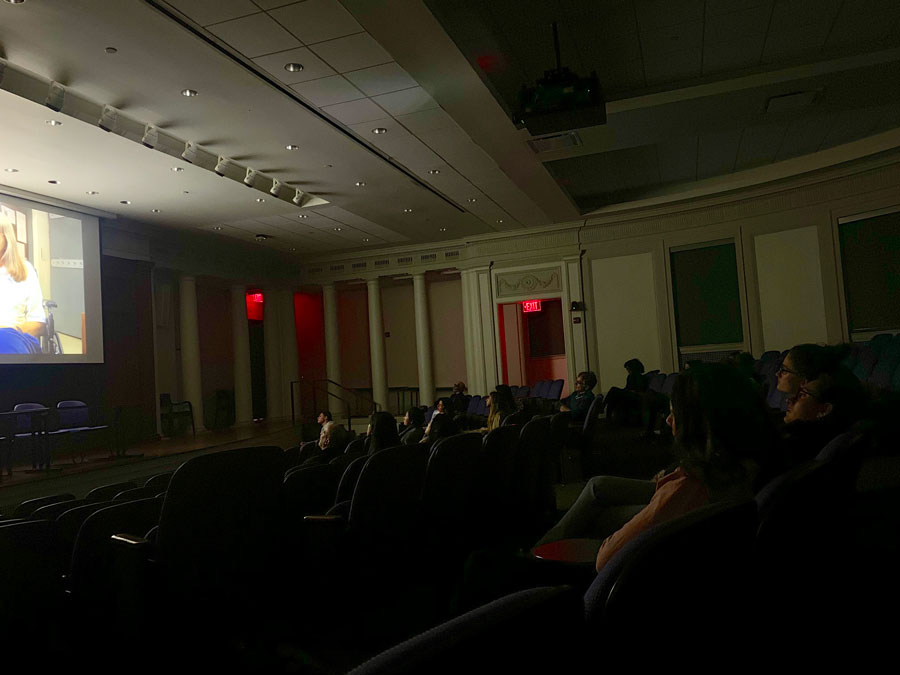Northwestern Prison Education Programs hosts ‘Stateville Calling’ screening and Q&A
Zinya Salfiti/Daily Senior Staffer
“Stateville Calling” shares the stories of elderly inmates and the push to re-institute parole in Illinois.
January 8, 2020
The Northwestern Prison Education Program hosted a documentary screening and Q&A panel on prison programming Tuesday in Harris Hall.
“Stateville Calling” explores issues of justice, rehabilitation and safety while following prisoner’s rights advocate Bill Ryan as he promotes re-instituting parole for Illinois state inmates ages 50 and up. The Q&A panel that followed included NPEP director and NU Prof. Jennifer Lackey, youth and family counselor Andre Joachim Jr., and engagement producer of the documentary Naeema Torres.
NPEP enrolls inmates at Stateville Correctional Center as official Northwestern students tuition-free. Inmates take Northwestern classes with in-person instruction from Northwestern professors and work toward degrees. One NPEP student was featured in the documentary.
The documentary highlighted the stories of inmates at Stateville Correctional Center — many who have been incarcerated for over 20 years — who found their own rehabilitation during their time in prison.
“I’m not the person I was,” inmate Janet Jackson said in the documentary “I’m not mentally ill anymore, and I haven’t been in a long time. I’m no threat to society and if given a chance, I could show society I have changed.” said.
The documentary also features some who are opposed to re-instituting parole for inmates over 50, including a mother whose son was murdered.
Many parole advocates shown in the film said elderly inmates may be twice as expensive to incarcerate as compared to younger inmates. Meanwhile, an increasing number of elderly people are incarcerated in Illinois. They also said that once released from prison, elderly people have a smaller recidivism rate, meaning they are re-arrested less often.
Lackey agreed age can reduce recidivism, but suggested there are more practical ways of achieving that.
“Some criminologists will say that the most effective way of reducing the recidivism rate is just age,” Lackey said. “But that’s not just something we can actually do.”
Lackey said former inmates with bachelor’s and master’s degrees are re-arrested substantially less often. According to a National Institute of Justice, recidivism rates are 5.6 percent for those with bachelor’s degrees and “effectively” 0 percent for those with master’s degrees.
Currently NPEP only offers associate degrees, but an expanded bachelor’s degree track is coming soon said Sophia Ruark, president of NPEP’s undergraduate program.
While instruction is carried out mainly by professors and some graduate students, undergraduates can still support NPEP by volunteering to facilitate workshops within Stateville. Ruark directed those interested to NPEP’s website and their weekly meetings.
“Education is transformative in any environment,” she said. “The privilege that I have and the opportunity that I have to be part of their journey and be part of their pursuit of a higher education is the most valuable thing to me.”
Email: [email protected]
Twitter: @jacksonfire123
Related Stories:
Students, professors agree prison reform is needed
Stateville inmates draw parallels between prison life, dystopian fiction at One Book event


